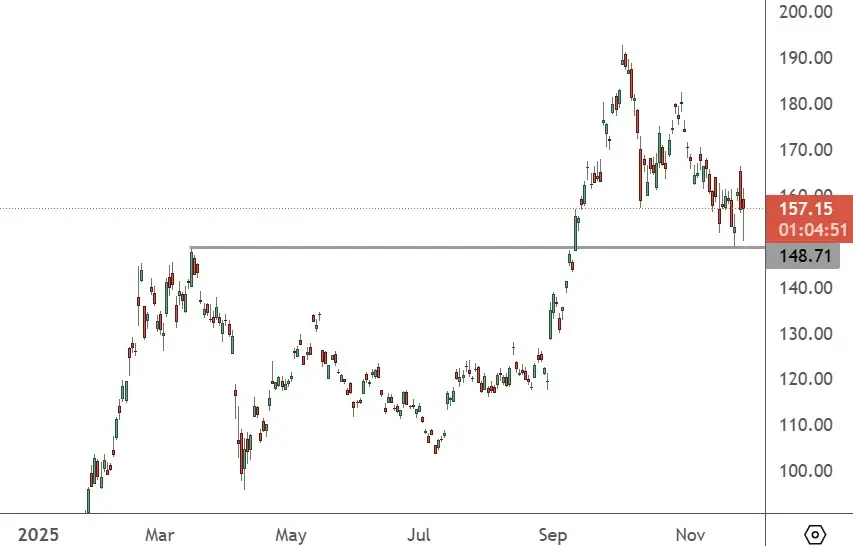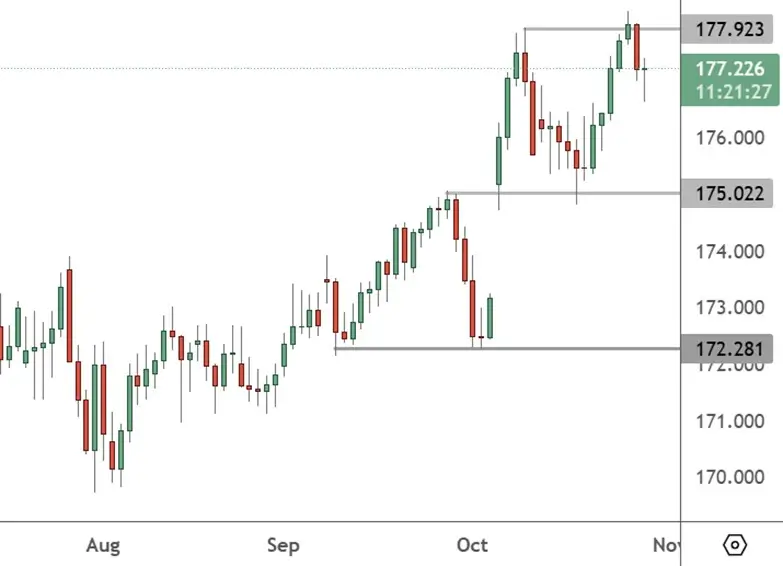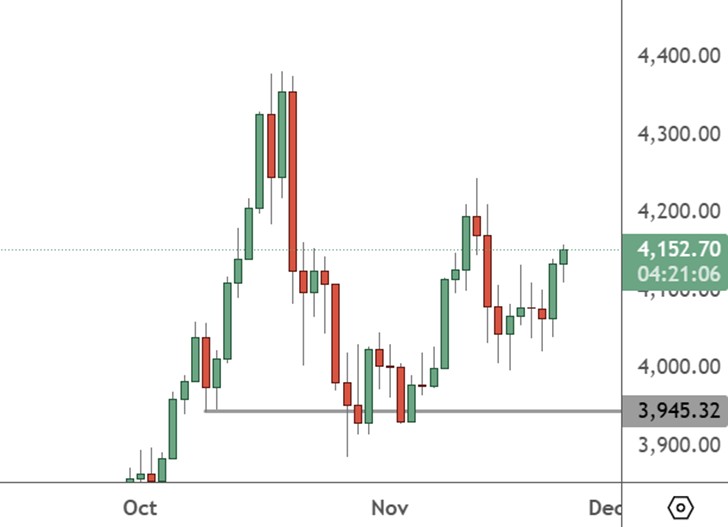As the confetti settles and the champagne bottles are cleared from the exchange floor, we’re waking up to a market hangover of epic proportions. Gold, that reliable market safety net, took a little stumble, dropping about 1%. It seems even gold’s feeling the effects of the market’s wild night out, with traders wondering if the Federal Reserve might swoop in with a surprise rate cut before their big meeting on September 18. The two-year Treasury yield had a rollercoaster ride, briefly dipping to 3.70% before bouncing back to 3.89%. Hope you didn’t eat lunch before strapping in for that ride!
Across the pond, the U.S. service sector managed a slight growth boost, led by arts, entertainment, and food services. However, this barely registered as Treasury yields zigzagged their way through the day. Small-cap stocks on the Russell 2000 index dropped 3.3%, erasing recent recovery gains and making the market party look like a ghost town.
Big Tech is in a bit of an existential crisis. Apple fell 4.8% after Warren Buffett’s Berkshire Hathaway decided it was time to take a slice out of their Apple stocks and slim down their iPhone stash. Nvidia, the darling of the AI world, took a 6.4% nosedive after news of delays with their new AI chip. And Alphabet fell 4.4% after a U.S. judge ruled that Google’s search dominance is squashing competition like a party pooper. The S&P 500 fell 160.23 points, the Dow tumbled 1,033.99 points, and the Nasdaq composite slid 576.08 points. Looks like Wall Street had one too many drinks at the market party!
Over in Japan, the Nikkei index decided to join the chaos with a 2.1% dive, adding to the global market mess. Investors are getting jittery about Japan’s economic outlook, and the international market’s mood swings are spreading fast.
Back home in Australia, the ASX 200 had its own dramatic meltdown. It plunged 3.7% on Monday, following a 2.1% drop on Friday. That’s a hefty $90 billion wiped off the local share market in just two days—making it the worst two-day sell-off since the COVID-19 pandemic. WiseTech Global took an 8.81% nosedive, Xero fell 5.55%, and NEXTDC dropped 7.39%. But at least ResMed managed a small win with a 2.92% rise, standing out like a single bright spot amid the gloom.
When Market Euphoria Meets Reality Check
After months of daydreaming about interest rate cuts and blissfully ignoring the market’s warning signs, we’ve hit full-blown panic mode. Just last week, the stock market was celebrating new records, convinced we’d avoid the usual recession hangover. But before the confetti even settled, Wall Street got a reality check, and investors are now sprinting for the exits faster than you can say “rate hike.”
The global fear of a slowdown has spread like wildfire. Even though Australian stocks lagged behind Wall Street’s recent boom, the local market had pushed companies beyond their long-term value. Investors were lulled into a false sense of security, thinking that easing interest rates meant perpetual market sunshine. Surprise, surprise—reality had other plans.
Economists, who were calling for more rate hikes just a few weeks ago, are now backpedalling as the latest data shows the need for further hikes to tackle persistent inflation. Their obsession with “data dependence” has them clinging to outdated numbers, which are about as useful for predicting the future as last month’s weather forecast.
The unemployment rate, which was supposed to rise with rate hikes, has been sticking around like an uninvited party guest. Historically, unemployment jumps sharply when a recession hits, not gradually. Employers are holding onto their workers until the very last moment, only letting them go when things look truly grim.
In these market rollercoaster times, ATFX Connect is here to offer tailored liquidity solutions to help you navigate the chaos. Let’s tackle the madness together and keep those market jitters in check!
By Mario Soto, Professional and Institutional Client Executive, ATFX Australia
Email: [email protected]


